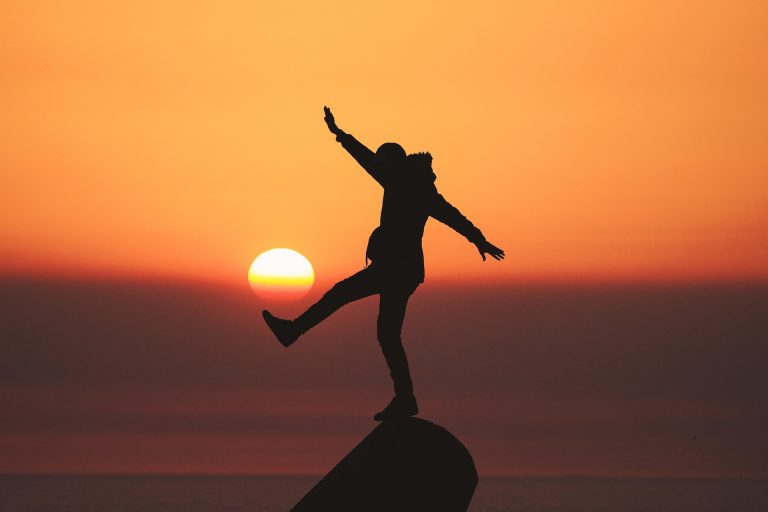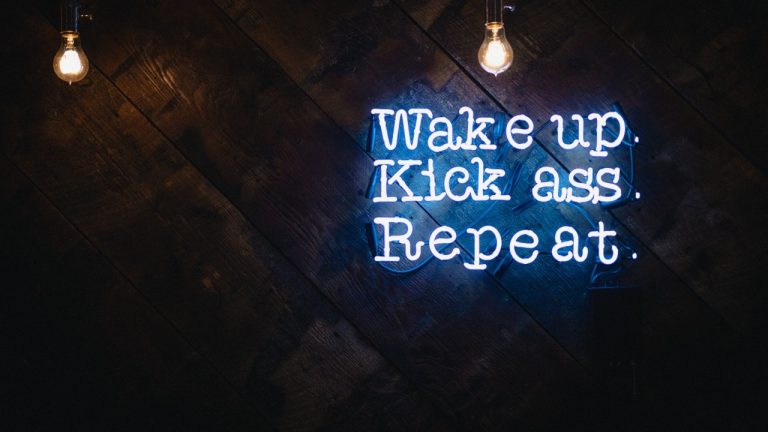Coming from a nation where the majority of my homeland lies below sea level, it is not only the dikes that keep us Dutch folk strong. Our love for coffee is an unbreakable cultural bond within The Netherlands. It comes as no surprise that even a type of coffee refers to my native country – Dutch Coffee. The knowledge and benefits of drinking coffee even reached outside the borders of my motherland.
Who would have thought that?
Sucked into the coffee culture from an early age, it was not before I started working to see my intake increase. Effortlessly downing 8-10 cups a day was the standard. Cups may be an underestimated measure – it was more like mugs. Our travel agency was the centre of pouring liquid black gold. We frequently drank as much of the filtered stuff as we booked holidays on a daily basis.
It was just a normal thing. A habit so engrained to keep on creating unforgettable travel experiences, I did not know what it did to my body. Over the years, alongside my alcohol intake, I decreased my 24-hour coffee intake to a decent 4-6 cups of sugar. To vary it, the more-than-occasional cappuccino added up to these new tallies. Still way above average. But again, a few cups of Joe a day may keep the doctor away.
I felt the benefits of drinking coffee were there somewhere.
Like with everything, when adding the word “too” to one’s intake, it’s bound to bounce back with a vengeance. Particularly in the form of high blood pressure, aside from not controlling my stress levels, this may have been the result of my excessive caffeine intake. Putting the brakes on it slowly and sustainably was something I had to do consciously.
We all know that coffee wakes us up. It also brings people together on a social level. The benefits of a moderate caffeine intake were hardly on the books during times when the first signs of coffee drinking hit the history books. Nowadays, there is more science behind drinking coffee, and what it can / cannot do.


Let’s review some of these markers related to coffee. Besides taking this up in my nutrition studies, I have been digging deeper into what coffee can do. And I define coffee in this perspective as a black cup, no sugar/milk added; the Americano version as we know it here in parts of Asia.
Is coffee good for the brain?
I am talking when taking caffeine in moderation when I say it can be highly beneficial for your brain. Studies suggest that an average of 3-6 grammes of caffeine per one-kilogramme body weight is the average homeostasis level. Taking into account that consuming 400 ml coffee includes around 200 – 250 grammes of caffeine, science leans very much towards drinking two cups a day. Besides other benefits, it may increase reaction time and improve one’s mood.
New studies are even in a direction that, in the long run, similar amounts of caffeine absorption may even protect against Parkinson’s and Alzheimer’s. The latter has not been 100% solidified. But from what I read, there is a correlation. It relates how caffeine affects the work done by the hormone adenosine and its connection with dementia. Adenosine also is a hormone that puts your need for sleep in the works.
How does coffee benefit our body?
Caffeine is a stimulant, a psychoactive substance.
Coffee works directly on your adrenaline levels. It increases our awareness, and includes antioxidants, as it travels to the brain once caffeine enters our bloodstream. The caffeine in coffee stimulates our nervous systems, can contribute to a higher metabolism, and improves physical performance. My usual pre-work-out cup of coffee has proven to do its magic compared to when I abstain from it and hit the gym.
In excessive doses, from what I understood going through some podcasts, it is on the banned list of substances for top athletes.
Talking about how potent caffeine can be.
The side effects of coffee
This is a big one. And certainly has connected to what I have endured over the years; too much coffee can increase anxiety levels. Increased alertness and stress levels are directly linked to symptoms of nervousness and getting the jitters. I am talking about slurping away 1000 ml of caffeine a day before this comes into play.
Intertwined with alertness levels, a biggie is how coffee can affect our sleep (decreases adenosine levels), how it dehydrates and increases blood pressure levels. And as with any psychoactive substance, it can become highly addictive.
Even a slight caffeine intake can cause the above-mentioned. No human being is the same. So how one can tolerate certain levels of caffeine levels depends from person to person. Drinking coffee and reaping its benefits is not something that is not set as a default.
Coffee benefits for weight loss
Aside from being a solid morning choice – when taken into moderation – coffee is a good source of antioxidants. It has outranked some fruits and vegetables on these levels. A few expert nutrition studies have shown, that it is now labelled as a dietary contributor of antioxidants in western diets. For many, including myself, drinking coffee can improve digestion, lowering the risk of type 2 Diabetes, and contains nutrients that benefit a healthy lifestyle (B Vitamins).
But as a stimulant for physical prowess, getting yourself moving with a shot of caffeine injected before hitting the weights is another way of looking at how caffeine can affect our physique.


To consider when drinking coffee
- Caffeine has a half-life of around 6 – 8 hours i.e. traces of caffeine may disappear out of your body between 6 and 8 hours after your last sip or gulp. When issues with sleep arise, consider having your last coffee before 2-3 pm;
- If coffee is not your thing, alternatives such as black/green/macha/yerba mate tea, apple cider vinegar, caffeinated chocolate, or kombucha (a fermented tea variety) are good options. Always avoid energy drinks or bottled milk coffee – the sugar levels in these drinks are not seen as benefits your overall weight loss journey;
- When drinking more coffee than usual for whatever reason, ensure you hydrate more;
- Black coffee combined with intermittent fasting is a match made in heaven. It does not break the fast!
- There is no ideal amount. One person can perfectly handle four coffees during the day and feel awesome while others barely can fall asleep after one cuppa. Working with a food journal and a coach can identify these markers and measures;
- Make sure that the benefits of drinking coffee go further than its nutritional and mental values. The pure enjoyment of it among family and friends is part of my deep health approach.
I am always in for a coffee meet, be it virtually or at one of the many brilliant brew buildings Bangkok has to offer.
But even a bad cup of coffee is better than no coffee at all | David Lynch









